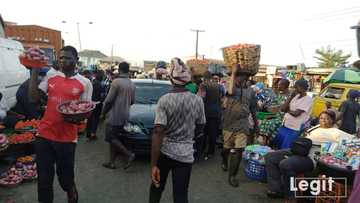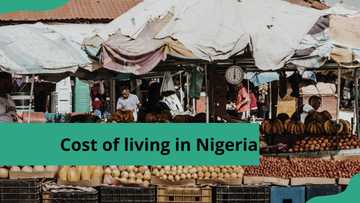Legit.ng weekly price check: Traders in Lagos market reveal how insecurity is affecting their business
- Nothing seems to have changed in the fight against insecurity in Nigeria, as traders in popular Lagos market express concern
- At the market this week, the traders in a chat with Legit.ng revealed the impact of insecurity on their businesses so far
- Adding that if security challenges persists in the country, food processing, production and supply of other goods would be affected further
- Further findings by Legit.ng showed the increment in the cost price of basic food items in the market
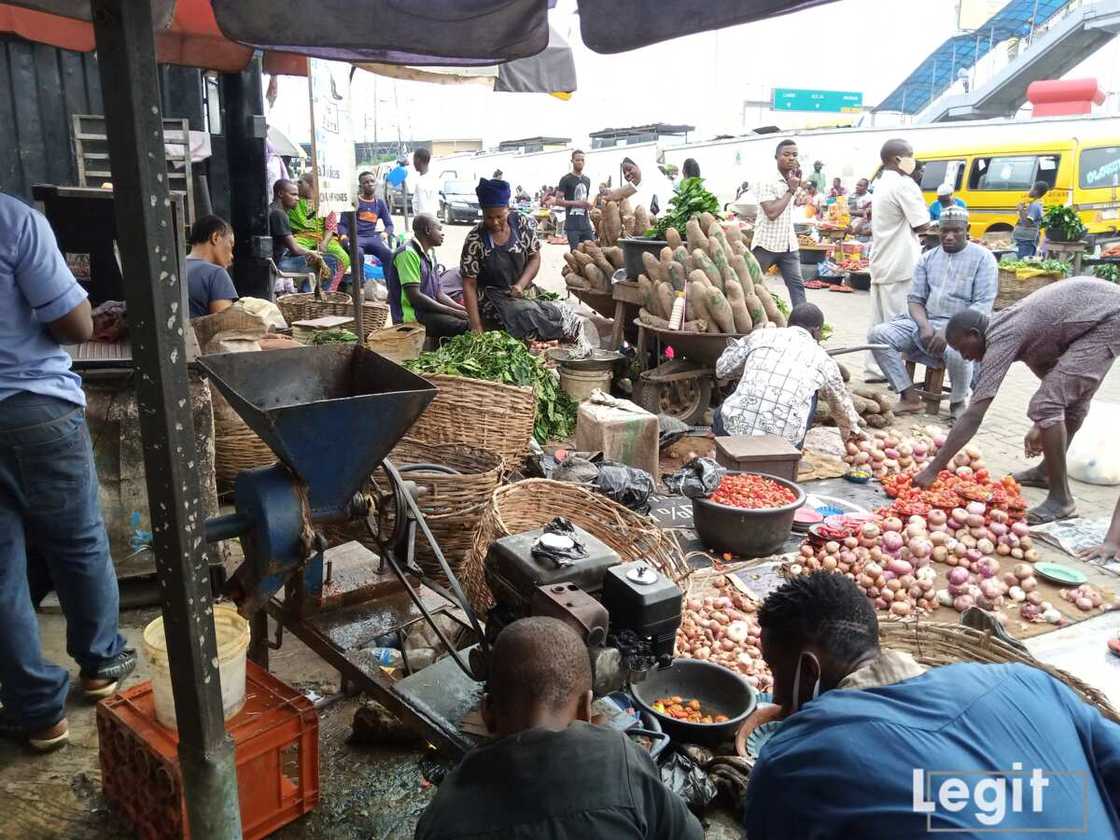
Source: Original
Business owners and food dealers in the state are worried about the production and supply of goods especially from neighbouring states as insecurity persists in the country.
The continuous fight against insecurity in Nigeria is one that revolves around not only on efforts of the security agencies but the populace at large. With recent cases of crime, armed attacks, kidnapping and killing of even security personnel in some states within the country, farmers and other food dealers are security conscious.
In spite of government efforts, the security situation in the country is deteriorating as the incessant killings and attacks by herdsmen mostly in the northern region of the country is said to be worse than Boko Haram insurgency.
Many attributed the violent attacks to poor governance, poverty, high rate of unemployment and decline in the education system. In actuality, recent abduction of students and the demand for ransom scares most business owners who travel by roads and also farmers, daily.
The rising cases shows clearly that government efforts geared towards this fight is not yielding positive results. It posits therefore the security challenges Nigerian is faced with, remains unchanged as the president has been urged to declare a state of emergency following recent attacks in the north-west and north-east regions.
Meanwhile, the country is still reeling from the global pandemic impacts that led to a second recession in less than six years of the Buhari-Osinbajo led administration; and the impact of the rising insecurity in the country is terrible resulting into rise in food prices.
This week at the market, nothing seems to be happening asides the usual market activity. At a popular Lagos market, there are some goods whose supply level was reasonable and there are others whose supply level was very low.
Legit.ng in a chat with the traders sought to find out how insecurity is affecting their businesses in recent times and sales generally.
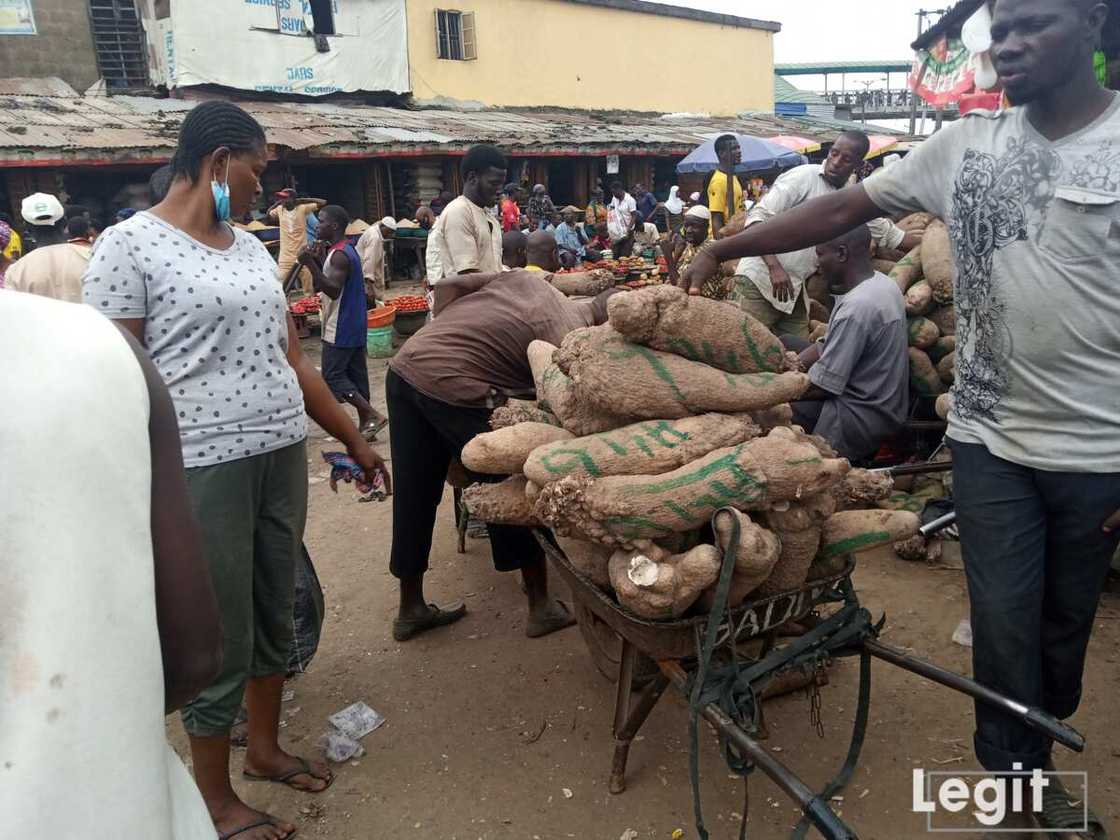
Source: Original
A yam seller at the market, in his opinion revealed the impact of insecurity on businesses and how it resulted to scarcity of some goods in the market.
He said: “Now, the issue we are faced with in the country, is one that affects not only our source of livelihood but our existence. The security issue has really gone beyond our power. The big problem is the impact it has on the supply of our goods. Farmers are scared of going into their farms to cultivate in some states as they attack them even on their farmlands.
“The issue we have sometimes are the suppliers who bring the goods from neighbouring state to the market, asides this, we are coping partially with business. Suppliers are scared of using the highway as most travel by night for convenience but the journey now is very risky for them as well.
“Presently, yam is expensive due to the season; its planting season for some farmers. Presently, the cost price of yam is very high now compared to previous weeks. Five tubers of small yam, is sold from N3,000 while the big-sized yam is sold from N1,000 and N1,500 upwards.
“Some traders are lamenting bitterly over the recent rise in the cost of purchase. It is so bad now that after purchasing some from certain suppliers, within days they get bad and we lose buyers because of this as most come back complaining of their previous purchase, this is the level we are now. Some of them that are a bit affordable get bad quickly and the ones that are good and stays longer, are very expensive. Insecurity, affects the business activities of our buyers we carry out transactions in some states across the country.”
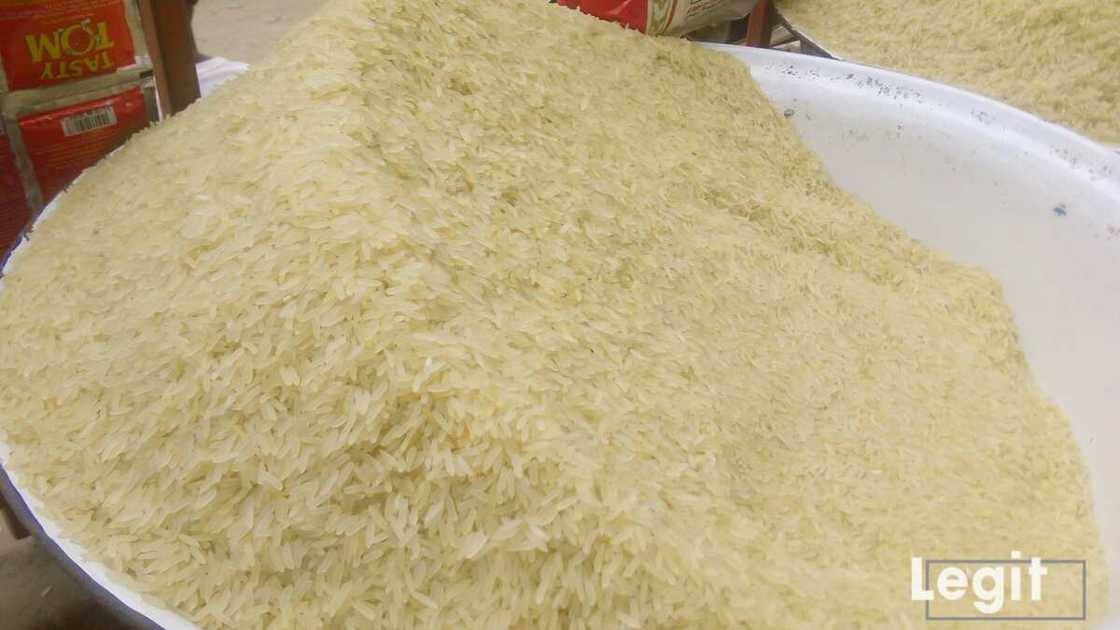
Source: Original
For rice dealers, the impact is much more than they envisaged as they spend more in purchasing the goods due to the risk involved in transporting them into the market.
A rice dealer at the market decried over the recent increment in the cost price of rice and beans. Reacting to the price increase and how security issues has affected businesses so far, he opined: “The pandemic has affected the economy bringing about inflated price of goods in the market but now, insecurity is an addition. Recently, there is an increment in the cost price of rice.
“The cost price scares us as business owners because we travel most times to get the goods so as to have a first-hand knowledge of the cost price from the suppliers; as they charge more if they bring it to our desired location, despite this we spend much more than we ever bargained for. This is why now; we just pay and they bring for us here in the market.
“With the continuous rise on insecurity cases in the country, we are very careful with our trips and therefore look for a better means of getting our goods into the market without losing our lives in the process. What we do now is purchase the goods, make payment and get security personnel to travel with the dealers bringing it into the state for us.
“We sell a bag of foreign rice; the long grain and the small grain for N25,000 in previous weeks, but now, it has increased to N27,000. The brand purchased determine how expensive and how affordable they are but a bag of foreign rice sells from N27,000 upwards; some might sell it below this cost price and others higher, it depends on the seller while local rice is sold from N24,000 as against its old price of N22,000 and N23,000 but some are sold from N21,000.
“Garri is also very expensive now. The white garri is more expensive than the yellow garri. A bag of white garri is sold from N20,000 and a bag of yellow garri is sold from N16,000. A bag of beans, oloyin sells from N26,000 upwards as against its old price of N23,000 and a bag of white beans sells from N51,000 and olotu from N46,000 upwards because it is purchased from Maiduguri. Insecurity has affected our business negatively, the result is the increment we are seeing now on goods we sell," The rice seller at the market told Legit.ng.
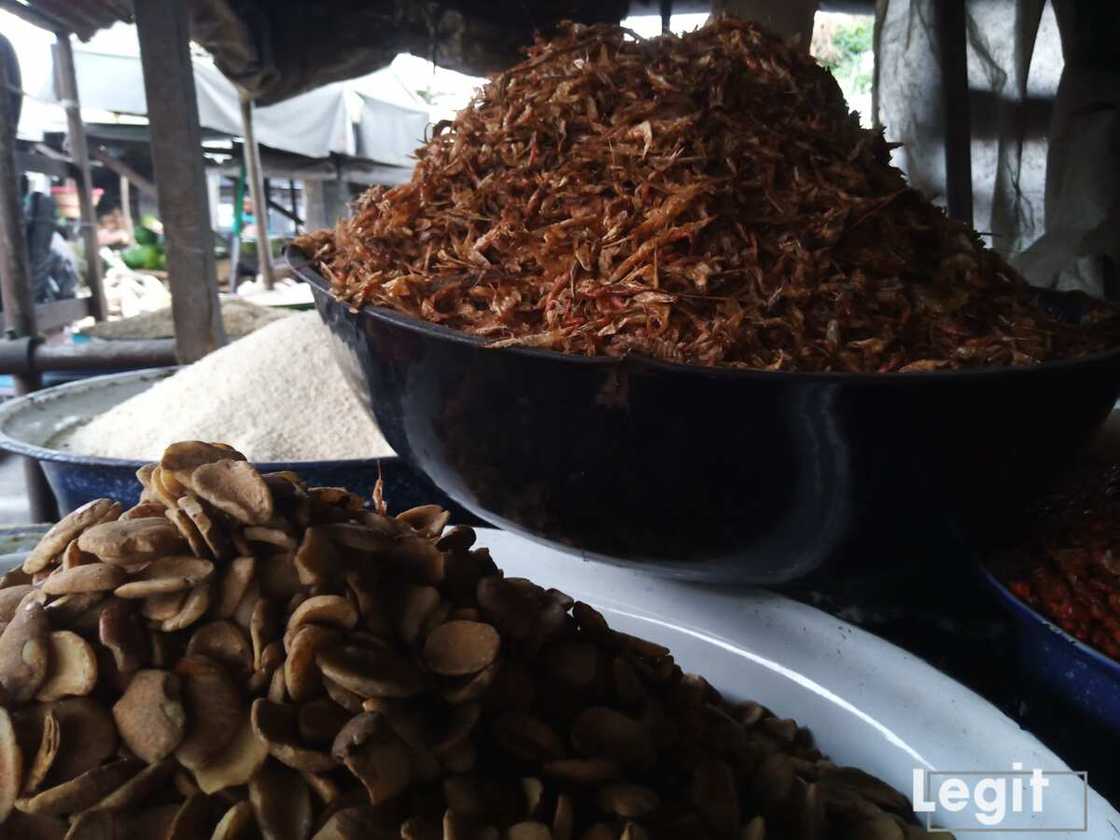
Source: Original
Similarly, a foodstuff dealer at the market, in his reaction on insecurity in the country and how it affects business in recent times; in a chat with our correspondent, explained in detail how food prices and sales level has been affected suddenly.
The trader who hailed from the eastern-region of the country stated thus: “We make sales but quantity of purchase by buyers dropped. We now purchase goods two-times higher than the amount we do before. Foodstuff items have become very expensive and the problem is that suppliers, they also spend more to see that their goods are secured as the attack persists even in places and states that were peaceful before.
“There is no market and there is no money to spend. We are all afraid, suppliers, distributors and we the wholesale dealers. It is no longer business as usual. Being alive now is risky. Insecurity is really affecting our business to a larger extent. Everything is expensive in the market now; cost price rises daily.
“Egusi is expensive, ogbono is expensive, pepper is expensive and even crayfish is expensive. We wake up to sad news and events daily now. The cost price of goods rises daily and does not become low even after the supply is high.
“A bag of ogbono that sells from N130,000 before, has risen to over N160,000 now. The cost price of egusi is still very fair compared to ogbono. A bag of egusi is sold from N45,000 upwards while crayfish is sold from N28,000 as against its old price of N26,000. And now at the market, the fresh crayfish is mixed with the ones that are not fresh, to make it look like its all fresh. Surprisingly, when you get home, you will then find out that they are not even neat and fresh.
“We spend a lot of money on this business; millions of naira. And one needs to purchase goods often so as not to lose customers during scarcity of the items and also to have the shop up and running rather than be empty with no goods available in large quantity. A lot is really happening in the country, we only pray and hope for God’s intervention as the efforts by the authorities is not yielding positive results in anyway.”
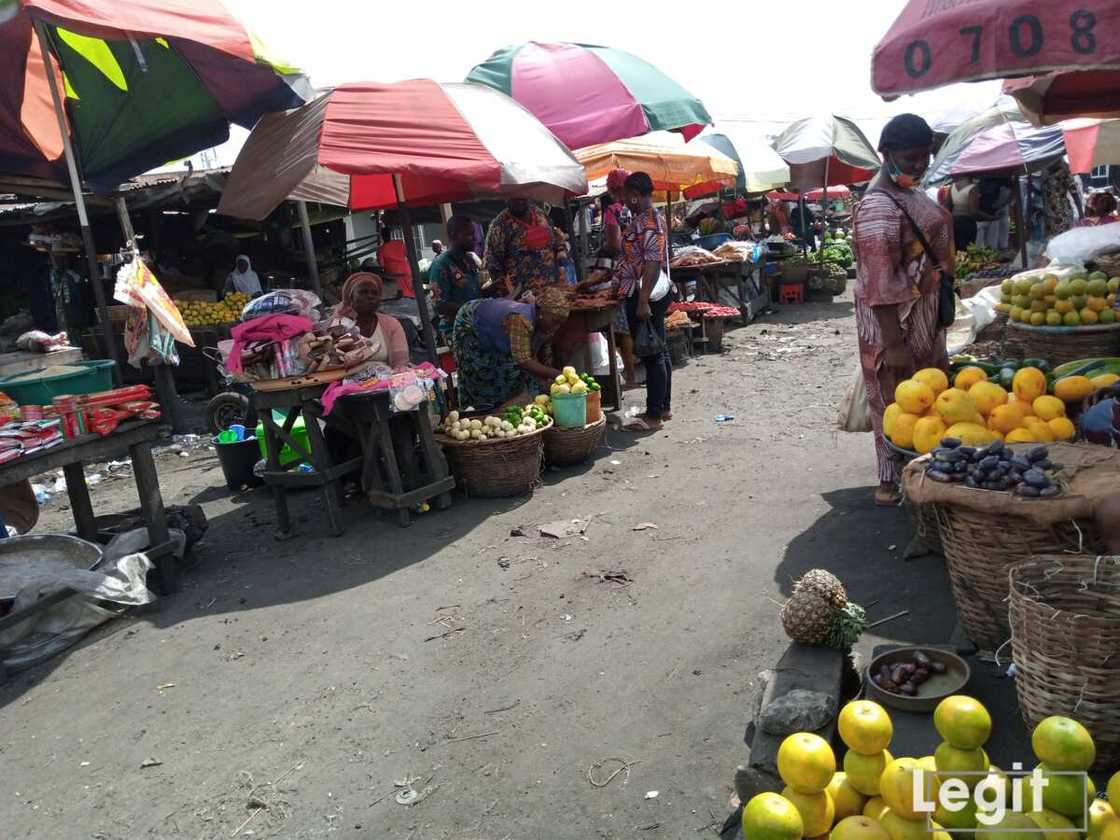
Source: Original
Still at the same market, there is increment in the cost price of fruits. Fruit sellers decry the rise in the cost of purchase and how their quantity of purchase reduced.
“The Ramadan often leads to increment in the cost price of fruit but not so much as at this period. Fruits have become very expensive and sometimes, you do not get to see some purchased in large quantity as the supply and availability is not stable.
“Also, the season determines the availability of the items. Some that are in season are always available and the ones out of season are expensive. The case is different now as they are all very expensive and supply of some very high. Weather condition is another factor to consider.
“The cost price of fruit increased by over five percent in the market. Fruits that are available in most markets now are banana, pineapple, orange, mango, avocado, carrot, dates, cucumber, watermelon and apple but they are very expensive now.
“Banana that cost N100 before, now sells from N200 while the carton of apple that cost N4,000, N5,000 and N6,000, is now sold from N8,000 and N10,000 respectively. A bag of carrot is sold from N6,000 and N7,000 upwards. And a dozen of watermelon, depending on the size, is sold from N3,000 and N4,000 upwards as the cost price of the big-size watermelon is very expensive.
“The security issue is affecting our business and the workflow of some buyers. Buyers who travel outside the state for business before, cannot travel now as they complain to us when they come around. We are not making good sales now despite the presence of Ramadan as some, when they are given the recent cost price of the fruits, they walk away because there is no enough money to purchase the goods in desired quantity,” A fruit seller at the market disclosed.
In another development, the cost price of perishable goods like tomato, pepper and onion dropped. According to a seller at the market, their cost of purchase fluctuates depending on the level of supply.
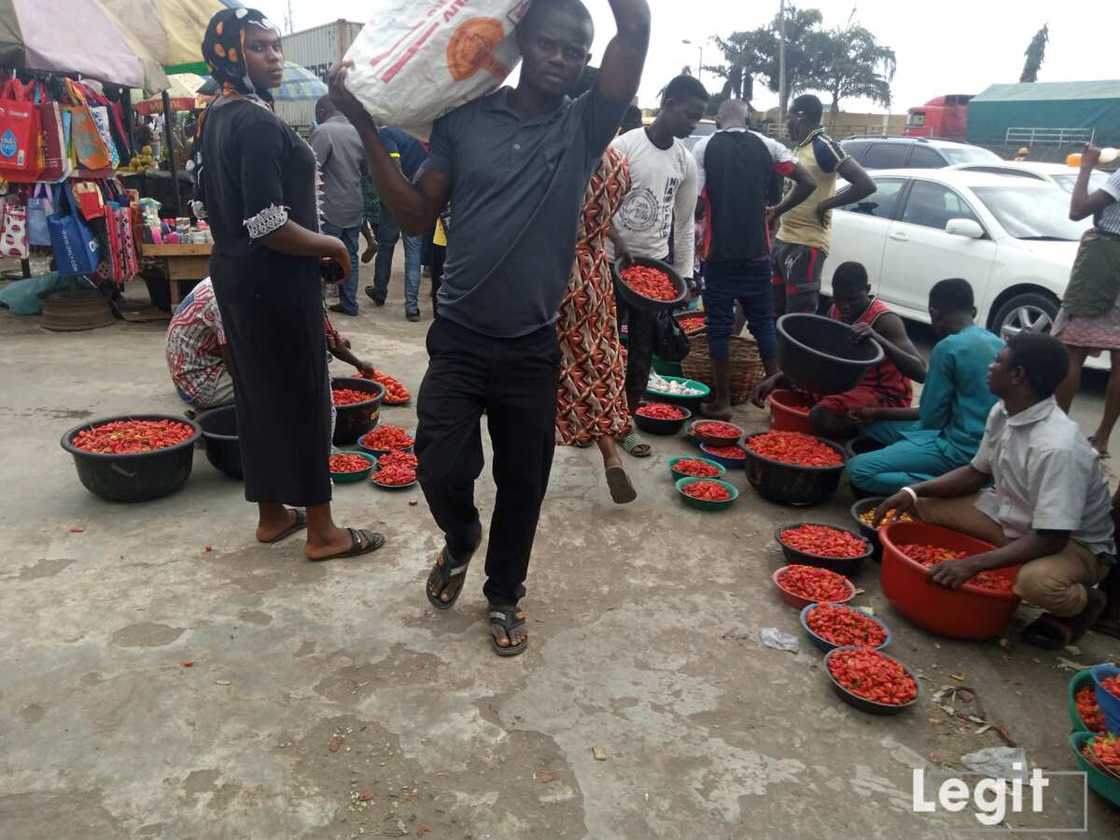
Source: Original
A tomato seller at the market, informed our correspondent that: “We as traders cannot really tell or give a fixed price of perishable goods in the market. Sometimes, they are cheap and at other times, they are expensive.
“Apart from the season wherein they are grown and harvested, the insurgency, banditry, abduction and killing of farmers, affect their supply level in the market now as most produce comes from the northern-region of the country, even the ones imported through land borders.
“There is stability in the cost price of onion but a basket of fresh tomatoes cost N8,000 and N10,000; the size of the basket and the size of the tomatoes inform their cost of purchase. A bag of pepper that cost N25,000 in previous weeks have reduced to N15,000 and below, as tatase is also out in the market now but is a bit expensive too.”
“The supply now is better than in previous weeks but the patronage is still very low. There was reduction in the cost price of pepper and tomatoes, while onion remains affordable at the moment. Also, the Ramadan fast affect productivity of some farmers which affects supply in the process too. We are not secured in this country and security issue is out of hand already. Market is still dry and business very dull. If nothing is done in earnest by the government, things in the market and the economy, might go from bad to worse.”
Other goods whose cost of purchased increased this week are provisional items, groundnut-oil, palm-oil and soft drinks. The former increased by over ten percent while the latter increased by five percent. The increment in the cost price of the goods affects the purchasing power of buyers as the market is scanty. With the presence of few buyers in the market, one can really tell what would become the fate of traders after daily sales now.
Following government’s continued effort to curb the coronavirus pandemic, killing and abduction of residents daily, now becomes the order of the day in some states within the country.
INTERVIEW: Roasting plantain, yam and potatoes is not easy via Legit TV
Source: Legit.ng

